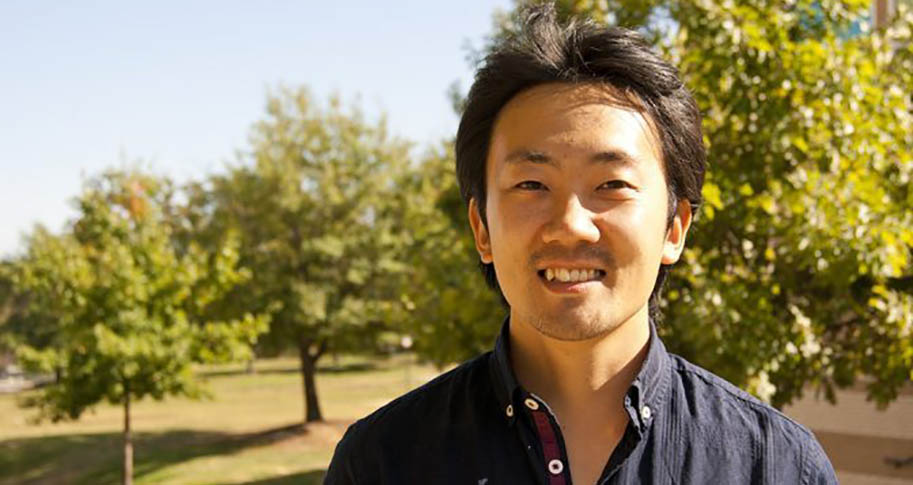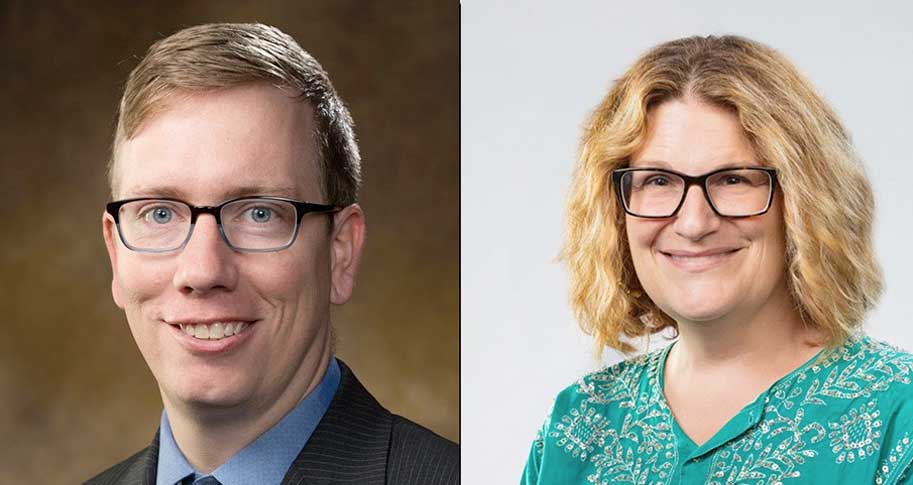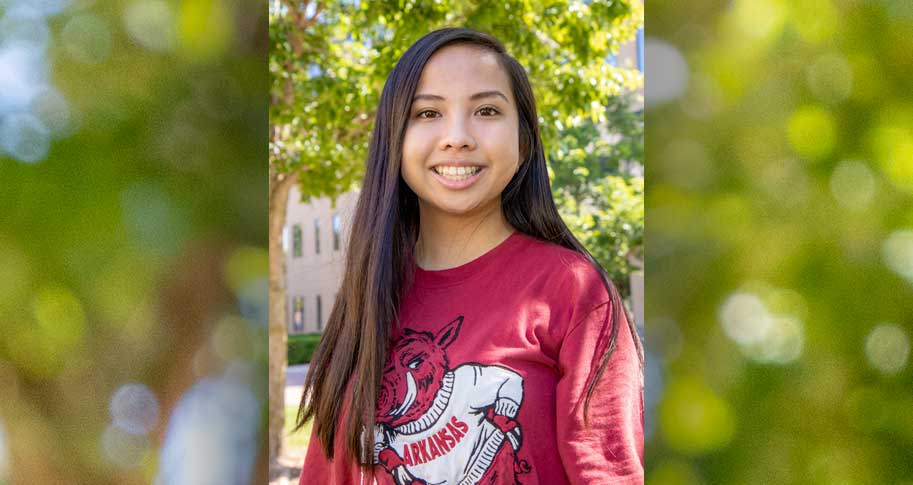
As a self-described “computer geek,” Dongya Koh has found a good use of his ability to write programming code: numerically solving complicated macroeconomic models.
He has the background for it, too. His professional career includes serving as a system engineer for Yahoo! Japan, a joint venture of the American internet company Yahoo! and the Japanese internet company SoftBank. As he continued his education, both in his native Japan and the United States, he developed an interest in economics and found a way to combine that with his computer knowledge.
Koh brings those talents to the Department of Economics at the Sam M. Walton College of Business, where he began his duties as assistant professor in August 2014. He teaches undergraduate and graduate courses in macroeconomics.
“I was very attracted to the warm atmosphere among faculty members.”
He says he was drawn to economics as an undergraduate at Keio University in Tokyo, where he majored in policy management. His college invited guest speakers from developing countries, who inspired him to pursue macroeconomics and development economics as a profession. After making his decision, his college advisor encouraged him to continue his education in the United States. “The U.S. is the place where I can learn the state-of-the-art research in economics,” Koh says.
He earned a master’s degree in economics at Boston University followed by a doctorate from Washington University in St. Louis. He knew he wanted to teach in America. He looked at several universities and was especially impressed with the University of Arkansas. “Walton College is one of the fastest growing colleges in the United States,” he says.
While visiting Northwest Arkansas, Koh enjoyed seeing the area’s countryside and the visibility of cows and horses – a stark contrast to St. Louis and Japan. When visiting campus for an interview, he immediately liked the place. “I was very attracted to the warm atmosphere among faculty members,” he says.
He was also impressed how the college fostered an environment where students can freely approach their professors.
Koh’s ongoing research includes imperfect risk sharing and economic growth. In any economy, not all individuals’ unpredictable income changes are insurable, thus, imperfect, he says. The degree of imperfectness is even higher in developing countries. Koh has studied individuals’ income risks and the degree of risk sharing by using Malawian and Ugandan panel data. His research is now extending to question the effects of providing an additional risk-sharing mechanism to the developing economies on their economic development.
Then there are economic observations of Northwest Arkansas, which is prospering well with three large corporations with headquarters here: J.B. Hunt Transport Services Inc., Walmart and Tyson Foods Inc. Koh likes to express this area with a Japanese proverb “Bamboo shoots after the rain.”
“Now, I am looking forward to seeing this region attract more people from outside for further development,” he says.




